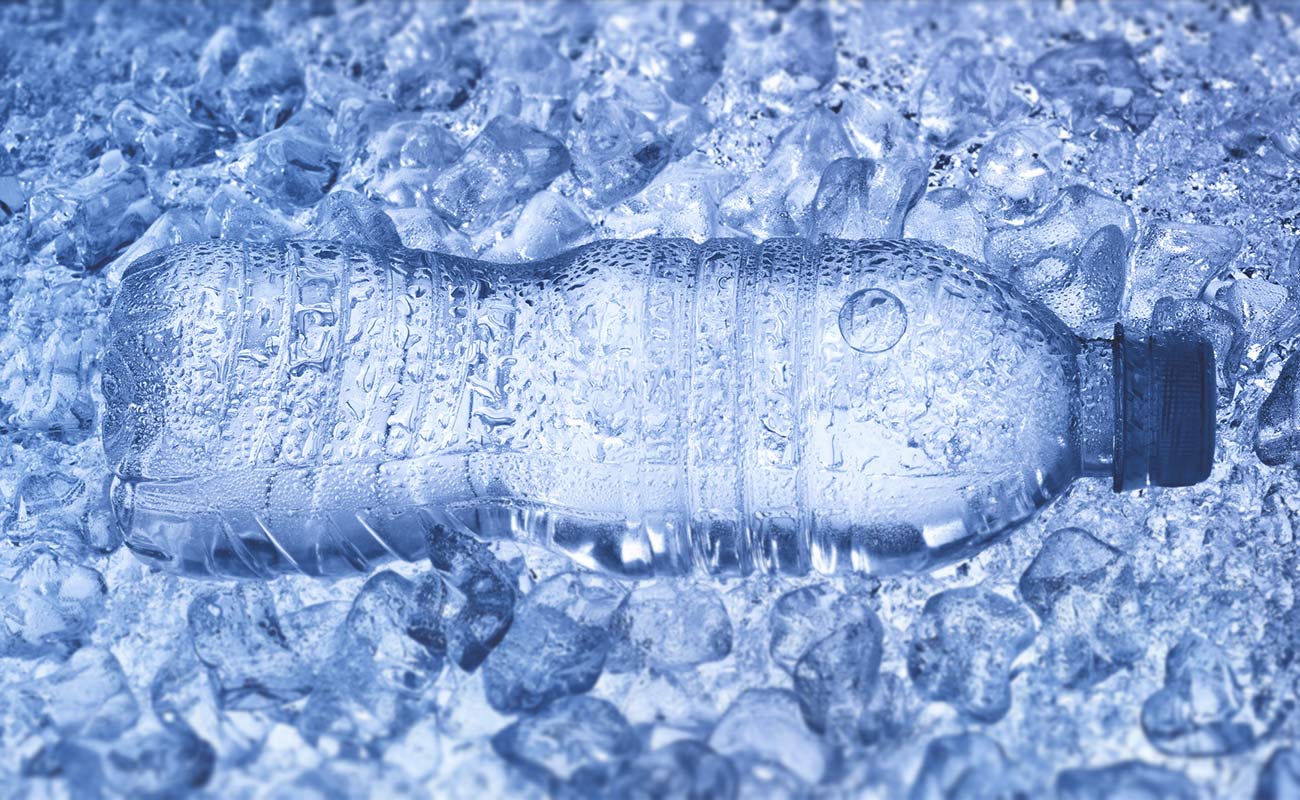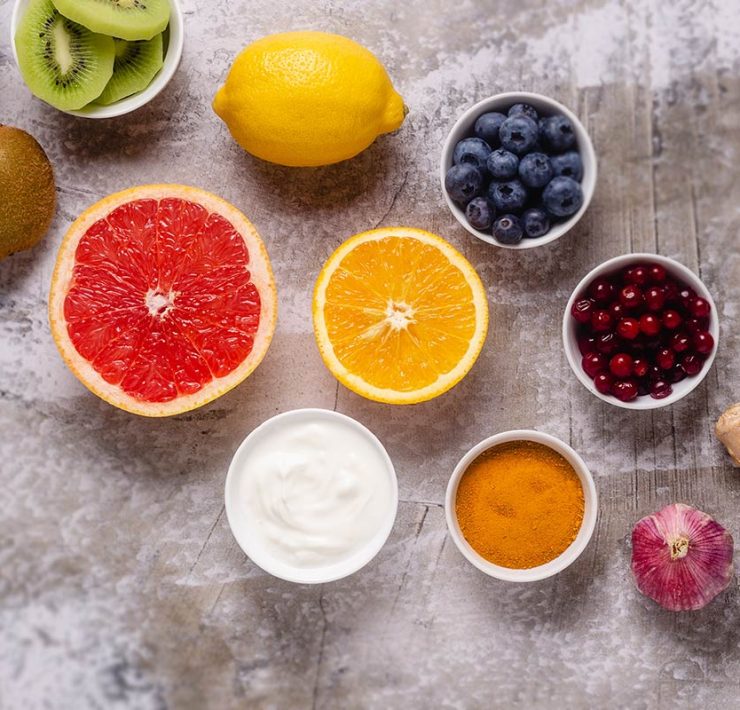Despite water making up 60–80% of the human body, our intake of it is easily overlooked, but hydration has far-reaching effects on both physical and mental health.
The U.S. National Academies of Sciences, Engineering, and Medicine determined that an ideal daily fluid intake to meet most adults’ needs is 2.7 liters (91 oz. or 11.5 cups) for women and 3.7 liters (125 oz. or 15.5 cups) for men. These recommendations include fluids from water and other beverages which make up about 80% of daily fluid intake, along with the remaining 20% of fluids derived from food.
If this seems like a lot, it is, but meeting these daily recommendations can have a big impact on your overall health. Some of the health benefits of hydration may even surprise you…
Drinking Water Aids in Weight Loss
Ever wondered why fitness programs stress fluid intake? Because one of the many benefits of water is that it can help you lose weight! Water suppresses your appetite and according to a 2013 study published in the Journal of Clinical & Diagnostic Research, it can also boost your metabolism via thermogenesis, which can help you burn more calories and promote weight loss over time.
Dehydration causes the kidneys to struggle in their function of cleansing blood and filtering waste, forcing the liver to assist in the process. Ample hydration allows the liver to focus on metabolizing fat more efficiently, which is essential for weight management. Hydration also prevents the retention of “water weight,” as the body won’t try to retain water when it’s well-hydrated.
Timing is key – water intake half an hour before meals is seen as most effective in increasing satiety, decreasing your hunger and leading to lower consumption of calories. According to a 2009 study, drinking 16.9 ounces (0.5 liters) of water before each meal can lead to a greater weight loss than a hypocaloric diet alone in middle-aged and older adults.
A Boost of Hydration Blows Away Brain Fog
Feeling mentally sluggish? Grab a glass of water instead of something caffeinated to boost your brain power and energy. Since our brain is made up of 73% water, dehydration can take its toll on neurological processes. Dehydration can:
- Influence your cognitive skills
- Impair your memory
- Make it difficult to focus
- Make it harder to perform psychomotor skills
- Negatively impact your mood
Studies show that even mild dehydration can lead to these risks. One 2011 study published in the British Journal of Nutrition found that fluid loss of 1.6% was detrimental to working memory and increased feelings of anxiety and fatigue among young men. Hydration helps oxygenate the brain, which is essential for optimal function, and studies show that the more water you drink, the more beneficial it will be for your cognitive performance and mood.
Drinking water can also support nerve function and encourages the production of neurotransmitters and hormones by giving the brain the electrical energy to perform all its essential functions. It ensures the body’s electrolyte levels remain high enough for your nerves to relay messages to and from the brain.
Numerous studies on subjects of all ages (children to seniors) and men and women support how critical dehydration can be on cognitive function and energy.
Proper Hydration Prevents Aches and Pains
Research has shown that headaches and migraines are among the first and most common symptoms of dehydration. According to the Cleveland Clinic “When you’re dehydrated, your brain and other tissues in your body shrink. As your brain shrinks, it pulls away from the skull, puts pressure on nerves, and causes pain … When you drink water … the brain plumps up to its previous size and the pain goes away.” One 2015 study in the Journal of Evaluation in Clinical Practice shows that 47% of 102 subjects with recurrent headaches reported notable improvements in the Migraine-Specific Quality of Life (MSQ) scale after drinking an additional 50.7 ounces (1.5 liters) of water daily.
“When you’re dehydrated, your brain and other tissues in your body shrink. As your brain shrinks, it pulls away from the skull, puts pressure on nerves, and causes pain. When you drink water, the brain plumps up to its previous size and the pain goes away.”
Cleveland Clinic
Aside from helping the brain function, water is also a natural lubricant for joints and muscles, keeping them strong, healthy, and less vulnerable to injury. Water prevents the surrounding muscles from developing lactic acid which can lead to inflammation and cause nerve compression. With joint cartilage relying heavily on a healthy water makeup, long-term dehydration can reduce their shock-absorbing ability. Proper hydration will go a long way toward warding off back pain and other chronic joint woes.
Specific pain conditions that are easily aggravated by dehydration include arthritis and fibromyalgia. According to a 2012 study of 20 patients with rheumatoid arthritis, it was demonstrated that water effectively relieved their symptoms by reducing oxidative stress and disease activity in the patients.
Drinking Water Boosts Your Immune System (in Multiple Ways)
Your immunity determines how capable you are of fighting infections and diseases, and drinking adequate water is a critical component of preventative healthcare.
A 2021 review on the effects of water consumption on immune response at the height of the Covid-19 pandemic highlights its importance for the success of disease treatment and overall health. It concluded that “clean and adequate water is one of the most significant steps in the world in improving child-adult health.”
To start, hydration promotes a healthy gut biome, which is crucial for robust immune function. A well-hydrated body can more regularly and efficiently remove bodily waste. This is largely due to water thinning the blood, which improves circulation of nutrients to the kidneys and other organs responsible for directly filtering and flushing out waste.
Water also helps the body more efficiently absorb nutrients from the food you eat by breaking it down more thoroughly, helping you gain the most benefit from a healthy diet.
And, of course, there are numerous ailments that are directly caused or aggravated by dehydration, including urinary tract infections, kidney stones, hypertension, muscle spasms, and even asthma attacks. Proper hydration can help keep all the body’s organs in proper working order—and working together to keep you healthy.
Healthy Hydration Supports Beautiful Skin
No matter what products or procedures you apply to the surface of your skin, what’s underneath has a much greater impact—and water has a fundamental role. One 2015 study published in Clinical, Cosmetic and Investigational Dermatology demonstrates that there is a strong relationship between hydration and skin health. It found that study subjects suffering dehydration showed a measurable improvement in skin appearance after increased water intake.
What’s the connection? The outer, visible layers of skin pull fluid from the capillary blood flow just under the surface. If H2O supply is deficient, the skin can become dehydrated, less resilient, and more prone to wrinkling. Internal dehydration can also become visible in the form of skin that is dull, rough, dry, scaly, itchy, even red and inflamed. And the water retention caused by dehydration can express externally as puffiness in the skin.
As the body’s tissues and cells are mostly composed of water, dermatologists recommend drinking adequate water in addition to your skincare routine for whole skin health. So be sure to reach for that glass of water (and not a diuretic soda or coffee!) when you feel like your skin could use a boost!







